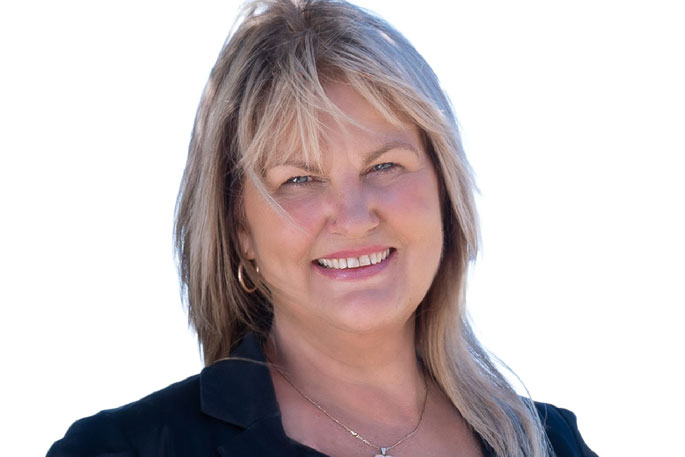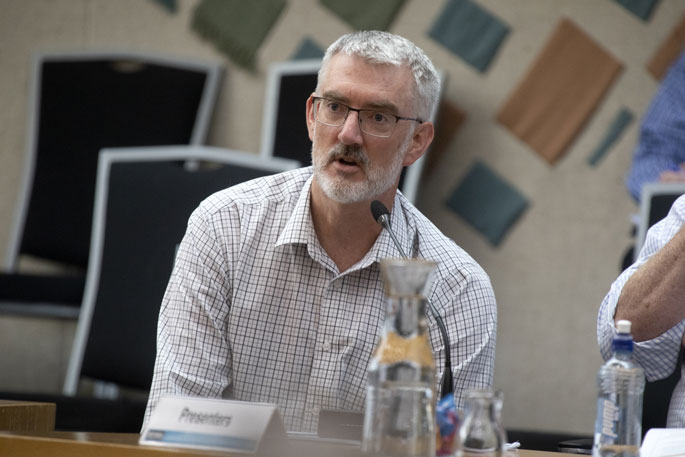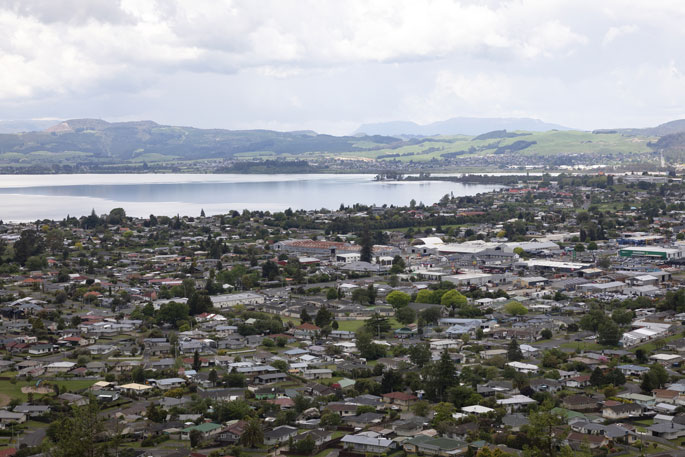First-home buyers and elderly renters are paying the price of a 'dire shortage” of housing in Rotorua, agents say.
It comes as a report projects the city will have a housing shortfall of 1890 homes by the beginning of next year.
The Rotorua Housing and Business Development Capacity Assessment 2021 was presented to Rotorua Lakes Council's Strategy, Policy and Finance Committee meeting on Thursday morning.
It stated the city had an unmet demand for 1500 homes. By 2030, the shortage was expected to be 1400, rising to 3630 by 2050.
 Rotorua Rentals director Pauline Evans. Photo / Andrew Warner / Rotorua Daily Post.
Rotorua Rentals director Pauline Evans. Photo / Andrew Warner / Rotorua Daily Post.
Speaking to Local Democracy Reporting, Rotorua Rentals director Pauline Evans says the city has been in 'dire shortage” of homes for about two or three years.
'I've never seen such shortages. It's huge demand.”
She says most houses put up for rent saw between 40 and 50 applicants.
Evans says she's particularly concerned about elderly people on fixed incomes who couldn't compete against families that might be able to get more help from welfare.
'They are the ones who are really suffering.”
In those cases some had to consider entering 'a flatmate situation”, she says, which is not ideal.
Harcourts Rotorua sales manager Michelle Matthews says first home buyers are struggling to find properties in their price range, and it had a 'flow on” effect for other buyers and sellers.
 Harcourts Rotorua sales manager Michelle Matthews. Photo / Supplied.
Harcourts Rotorua sales manager Michelle Matthews. Photo / Supplied.
She says the median price in Rotorua is about $700,000, which is 'pretty good” compared to other places.
However, the lack of supply means people who already own homes are reluctant to put them on the market because they are unsure about finding a replacement.
Matthews says conditional offers on house sales are becoming more prevalent.
The rental market is also tight, which means tenants are reluctant to allow access for their landlords if properties went on the market for fear of not being able to find another rental, she says.
Matthews says councils everywhere need to look at how their systems support new builds and 'making it a bit friendly” for developers and investors.
'We're still listing them and they're still getting sold, but we're having to think outside the square on how to support buyers.”
 Realty Group Ltd managing director Simon Anderson. Photo / Andrew Warner / Rotorua Daily Post.
Realty Group Ltd managing director Simon Anderson. Photo / Andrew Warner / Rotorua Daily Post.
Realty Group Ltd managing director Simon Anderson says competition is across the entire market and not particularly acute for any one group.
He says it also affects renters as bright-line test changes means investors hike rents to balance it.
Anderson says it's not as simple as building new homes as there are building supply shortages.
'It's going to become worse, it's not about to go away.”
As part of the report, council officers also presented housing bottom lines to the committee. For short and medium term this referred to the amount of development that must be enabled to meet demand plus a 20 per cent 'competitiveness margin”.
For the long-term it was plus 15 per cent.
The bottom lines were 3560, 6240 and 9740 homes in the short, medium and long-term respectively. The council is required to include the bottom lines in its district plan.
The bottom line and shortfall figures were presented to the committee in November last year in draft form.
 Rotorua Lakes Council chief executive Geoff Williams. Photo / Andrew Warner / Rotorua Daily Post.
Rotorua Lakes Council chief executive Geoff Williams. Photo / Andrew Warner / Rotorua Daily Post.
In the meeting, council chief executive Geoff Williams said the finalised report provided conclusive and tangible evidence of the extent of Rotorua's housing crisis, and a basis to ramp up efforts to enable housing.
'It's not surprising that people are having difficulty finding homes.
'So far we haven't had this level of conclusive evidence. What we've now got is a very clear direction to say that [the] council needs to respond to the needs of just short of 10,000 homes.”
He said the council's role was to make sure there were no barriers to the development of those homes.
'We also need to ensure there are no infrastructure barriers.
'Beyond that we need to look at how … we encourage development.”
He said some consideration was made on whether the council got into development itself.
'A good example of that is the development of housing for older people, that [the council] already have.”
At the meeting council planning team leader Kate Dahm said the main recommendations in the report were to rezone Fenton St to more intensive mixed-use zoning, proving more infrastructure served greenfield land and ensuring the city centre was an attractive place to invest, do business and live.
It also recommended the council continue to seek funding to address stormwater capacity and to consider more light industrial zoning, she said.
Dahm said the bottom line figures were not targets, but the minimum number the council had to enable.
 Rotorua Lakes Council district development deputy chief executive Jean-Paul Gaston. Photo / Andrew Warner / Rotorua Daily Post.
Rotorua Lakes Council district development deputy chief executive Jean-Paul Gaston. Photo / Andrew Warner / Rotorua Daily Post.
District development deputy chief executive Jean-Paul Gaston said part of the issue was the type of supply available as the size of households was decreasing, and people were looking for smaller homes, and an aging population looked to downsize.
He said a district plan change – to allow more intensification – was a priority for the city, but the district had got 'quite a long way behind” to meet the housing need.
Gaston said the council needed to support the market to respond to the demand and needed to work with government agencies to ensure supply of public housing.
'There is no single magic bullet here, there is a need for every aspect of housing and urban development in our city to move forward strongly.”
He said that was why housing was a 'significant focus” in the 2021 Long-term Plan and council teams worked to ensure it had a broad understanding of 'every lever we can pull” to enable supply.
'We've talked previously about the headwinds that then come around the corner with increasing interest rates, supply chain issues and the great search for gib.
'We need to support every opportunity to see homes built.”
A report for the meeting also stated the council intended to develop a Future Development Strategy which would inform the 2024 Long-term Plan.
That strategy would specify where and how development capacity would be provided to meet future growth needs. It would also inform the council's 30-year infrastructure strategy.
The committee unanimously agreed to recommend the council adopt the report and the housing bottom lines.
-Local Democracy Reporting is Public Interest Journalism funded through NZ On Air




0 comments
Leave a Comment
You must be logged in to make a comment.